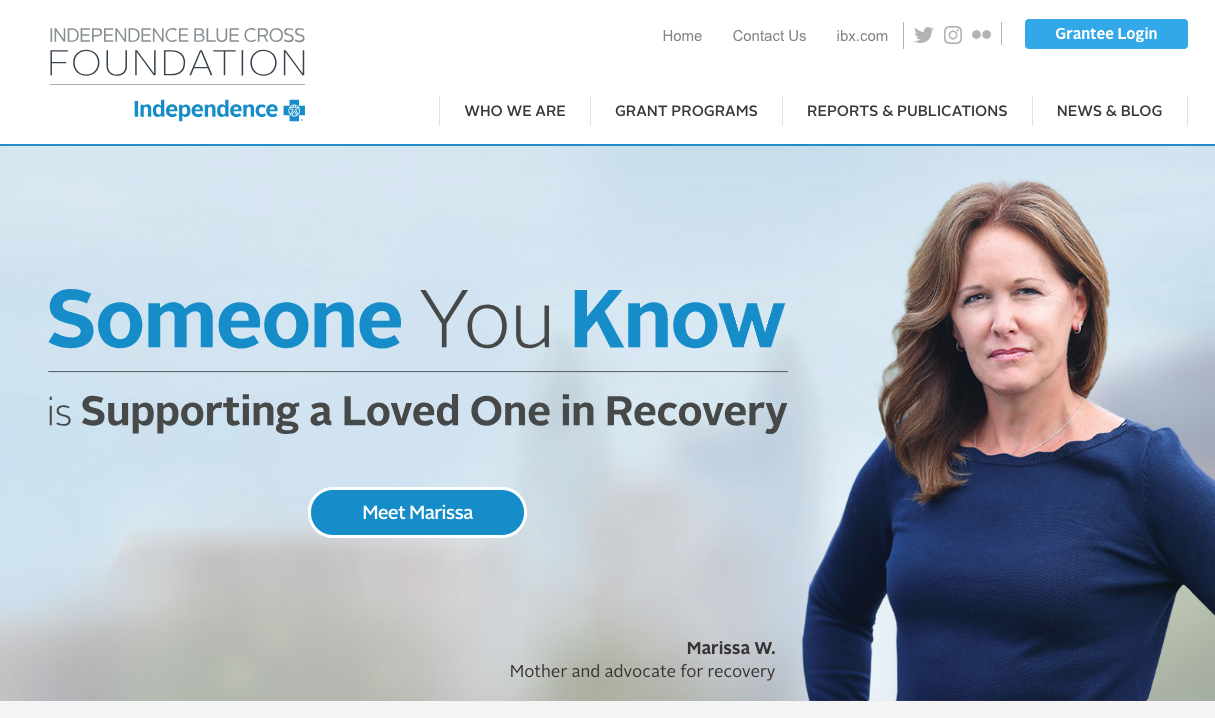Where's This Pharma Funder Sending Health Grants in Philadelphia and Beyond?
/Photo: JPC-PROD/shutterstock
Based just outside of Philadelphia, AmerisourceBergen is ranked number 11 on the Fortune 500 list and just launched its own grantmaking foundation two years ago. This corporate/pharmaceutical funder kicked things off by getting involved with local health and education groups. For example, the AmerisourceBergen Foundation awarded a $250,000 grant to Project HOME to build a new community pharmacy in the Stephen Klein Wellness Center in North Central Philadelphia and a $50,000 grant to Project C.U.R.E. to support the logistics of collecting more than $2 million in donated medical equipment from Philadelphia-area hospitals and redistributing it in developing countries. A range of other gifts have followed.
To get a better sense of AmerisourceBergen’s funding focused on Philadelphia and beyond, we got in touch with the foundation’s president, Gina Clark, to ask a few questions.
Clark told us that when the foundation was first established, it initially focused on local groups in the Greater Philadelphia area. However, this no longer a strictly local funder because now, the AmerisourceBergen Foundation is expanding its reach across the national and globally too. Since the foundation’s inception in 2015, it has contributed $3 million to nearly 120 nonprofits in the communities that AmerisourceBergen serves.
Clark said:
As part of these efforts, for example, the foundation has committed to improve access to healthcare in extremely underserved areas, including both Haiti and Rwanda. In Haiti specifically, we were able to fund a new medical distribution center through our collaboration with Partners in Health that will provide 1.6 million people with increased access to medicines and medical supplies.
But this doesn’t mean that the AmerisourceBergen Foundation has lost touch with local needs. Clark says that the greatest health need in Greater Philadelphia right now is access to health care, especially in the region’s medically underserved areas.
She explained:
Access to health care varies significantly from community to community and can be affected by a variety of factors, including geographic, cultural and language barriers, as well as the cost of care. A 2015 report commissioned by the Philadelphia Department of Public Health found that the ratio of patients to primary care providers is about 900-to-1 citywide, but in certain neighborhoods, the ratio skyrockets to close to 3,000 adults for every primary care provider. That can translate into longer wait times for an appointment—ultimately delaying care—or it can result in seeking treatment in higher cost settings, such as hospital emergency rooms.
Something that sets the AmerisourceBergen Foundation apart from other health-focused foundations is that it seems to understand better how to balance support for large, global issues with support for diseases that affect smaller and more targeted populations. This is a funder that regularly funds research for rare disorders as well as research and technology healthcare advancements with broader implications.
Since Clark is the leader of a relatively new foundation, we were also curious to learn what important lessons she’s learned so far about awarding grants to nonprofits. In light of the increasing number of organizations needing resources and the task of narrowing down which organizations to support, she said:
I’ve learned, though, that it’s important to stay focused on the goals of the Foundation and continue to direct our funding and resources into areas within the healthcare communities we serve. Our commitment is to create healthier futures and enhance the overall health and wellbeing of patient populations by investing in communities and partnering with organizations that focus on expanding access to quality healthcare and educational opportunities that strengthen communities around the world.
Starting with AmerisourceBergen’s CEO, service is an increasingly important part of this company’s mission. “The foundation allows us to continue to link our social impact initiatives with our associates’ expertise and their ability to understand the unique challenges that face the organizations the foundation supports,” Clark said.
The foundation website does not provide application forms or deadlines related to applying for a grant, but you can request more information via online form. We’ll leave you with some final words of advice that Clark would offer nonprofits interested in receiving an AmerisourceBergen Foundation grant.
Whether it’s a local nonprofit in the Greater Philadelphia region, or a global organization, the AmerisourceBergen Foundation provides charitable grants to organizations whose mission aligns with ours: to positively impact the lives of people in the communities we serve by improving the health and wellbeing of our patient populations. The Foundation is strategic in its focus to support access and education throughout communities worldwide.
While it's great to see AmerisourceBergen stepping up its grantmaking, it's important to note that this company has faced criticisms lately for businesses practices that have allegedly undermined public health. Last year, it agreed to settle a lawsuit brought by West Virginia alleging that the AmerisourceBergen contributed to the opioid crisis in that state by shipping millions of hydrocodone and oxycodone pills to West Virginia despite evidence of rampant addiction and overdose rates. The company paid $16 million while admitting no wrongdoing. In June, two counties in Ohio also sued AmerisourceBergen, along with other drug wholesalers, on similar grounds.
You can learn more about the AmerisourceBergen Foundation by checking out IP’s full profile in our Philadelphia Funders section.







































